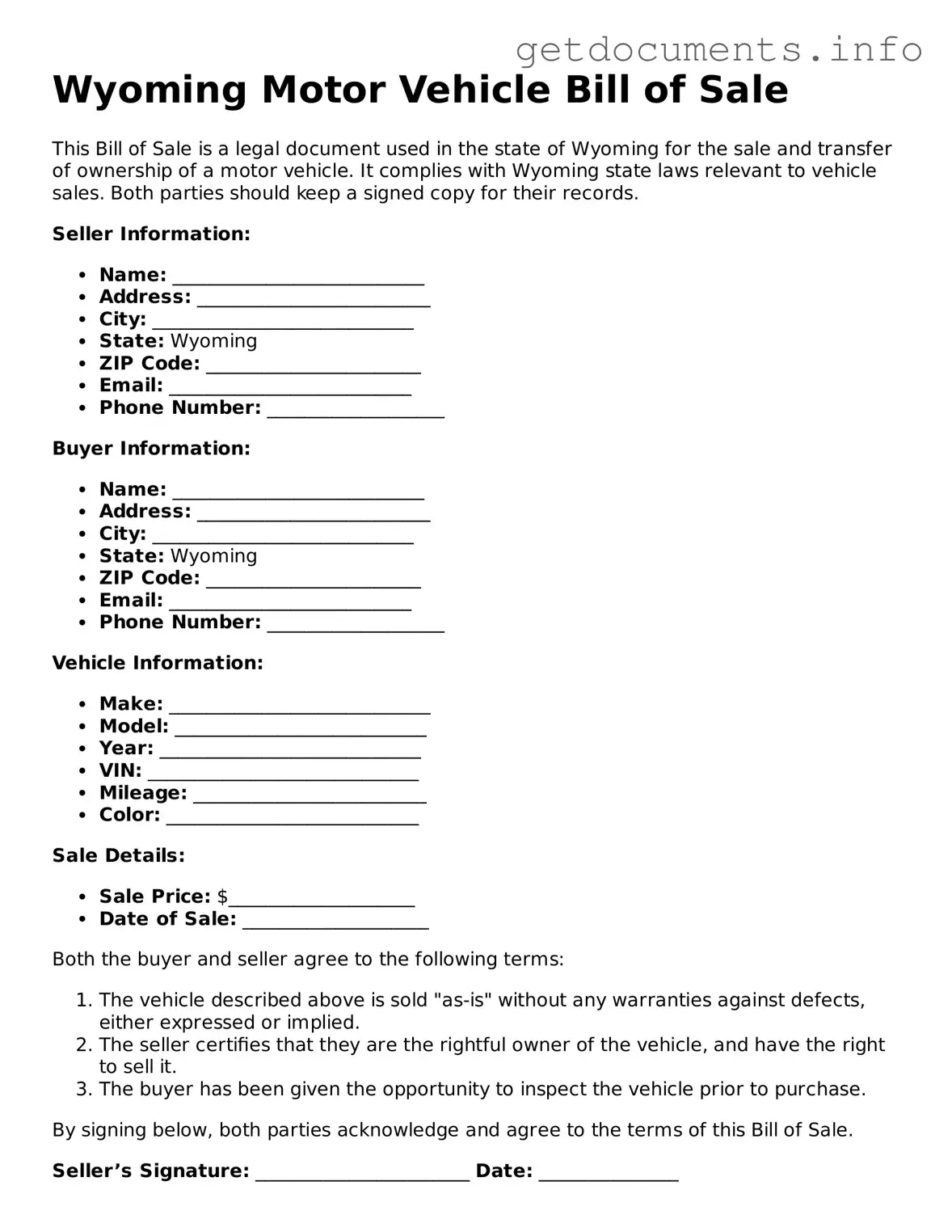Free Motor Vehicle Bill of Sale Template for Wyoming
The Wyoming Motor Vehicle Bill of Sale form is a legal document that records the transfer of ownership of a motor vehicle from one party to another. This form serves as proof of the transaction and includes essential details about the vehicle and the parties involved. To ensure a smooth transfer, it is important to fill out this form accurately; click the button below to get started.
Access Motor Vehicle Bill of Sale Editor

Free Motor Vehicle Bill of Sale Template for Wyoming
Access Motor Vehicle Bill of Sale Editor
Got places to be? Complete the form fast
Fill out Motor Vehicle Bill of Sale online and avoid printing or scanning.
Access Motor Vehicle Bill of Sale Editor
or
⇩ PDF File
